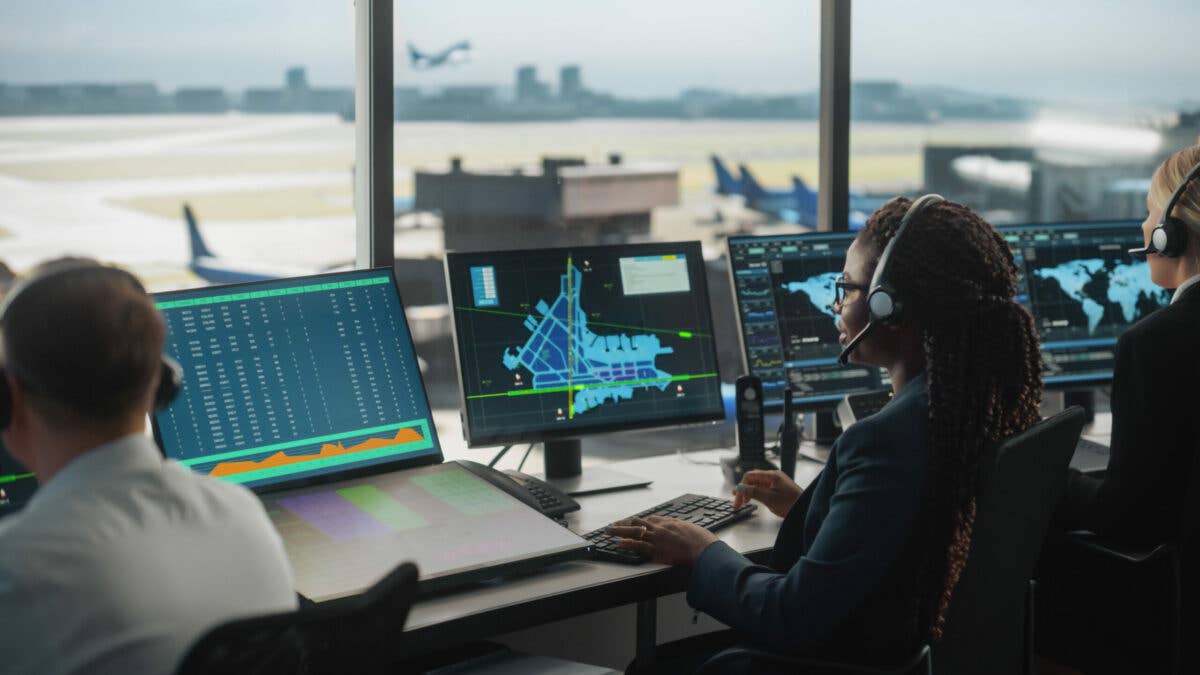FAA Moves to Improve Controller Training, Safety Reporting
The FAA says it is taking immediate action to improve air traffic controller training and safety reporting in response to a recently released National Airspace System Safety Review Team report.

The FAA is making changes aimed at streamlining and improving air traffic controller hiring and training. [Shutterstock]
The FAA says it is taking immediate action to improve air traffic controller (ATC) training and safety reporting in response to a recently released National Airspace System Safety Review Team report.
The assessment was commissioned by the agency following its March Safety Summit, which focused on a recent string of close calls at airports across the country. Conducted by an independent safety review team, the report covered the FAA’s internal safety processes, staffing levels and practices, facility and equipment needs, and funding.
Among its recommendations, the team called for the strengthening of FAA organizational structures, further investment in the hiring, training, and certification of personnel, and adequately and consistently funding and authorizing the agency.
“Generally, the ATO [Air Traffic Organization] employs robust policies, procedures, and programs to manage safety risk and enjoys a just safety culture,” the team said in its report. “However, the FAA continues to be asked to do more with less in an already strained system, and the series of serious incidents in early 2023 illuminate significant challenges to the provision and safety oversight of air traffic services. These challenges, in the areas of process integrity, staffing, and facilities, equipment, and technology, all have ties to inadequate, inconsistent funding.”
As part of its plan to address the safety review team’s recommendations, the FAA will no longer be requiring graduates of the Air Traffic-Collegiate Training Initiative (AT-CTI) Program to attend the agency’s Air Traffic Controller Academy prior to being assigned to an ATC facility. Graduates will still need to pass the Air Traffic Skills Assessment (ATSA) exam along with satisfying medical and security requirements. The FAA noted that it will be working with AT-CTI programs to ensure that graduates have the skills necessary to begin on-the-job training.
“Aviation is safe because we are continuously looking for ways to improve,” said FAA Administrator Mike Whitaker. “The independent safety review team made some excellent recommendations, and we are adopting some of them immediately.”
The FAA also announced a year-round hiring track aimed at bringing in “experienced controllers from the military and private industry.” In addition, it intends to increase classroom capacity at the FAA academy and expand advanced training across the country. Looking toward longer-term training needs, the agency plans to deploy tower simulator systems in 95 facilities by December 2025, the first of which is scheduled to open in Austin, Texas, by January 2024.
Finally, the FAA says reports from the Air Traffic Safety Oversight Service will be provided to the FAA administrator and Aviation Safety associate administrator with the goal of strengthening safety culture at the agency.

Subscribe to Our Newsletter
Get the latest FLYING stories delivered directly to your inbox






